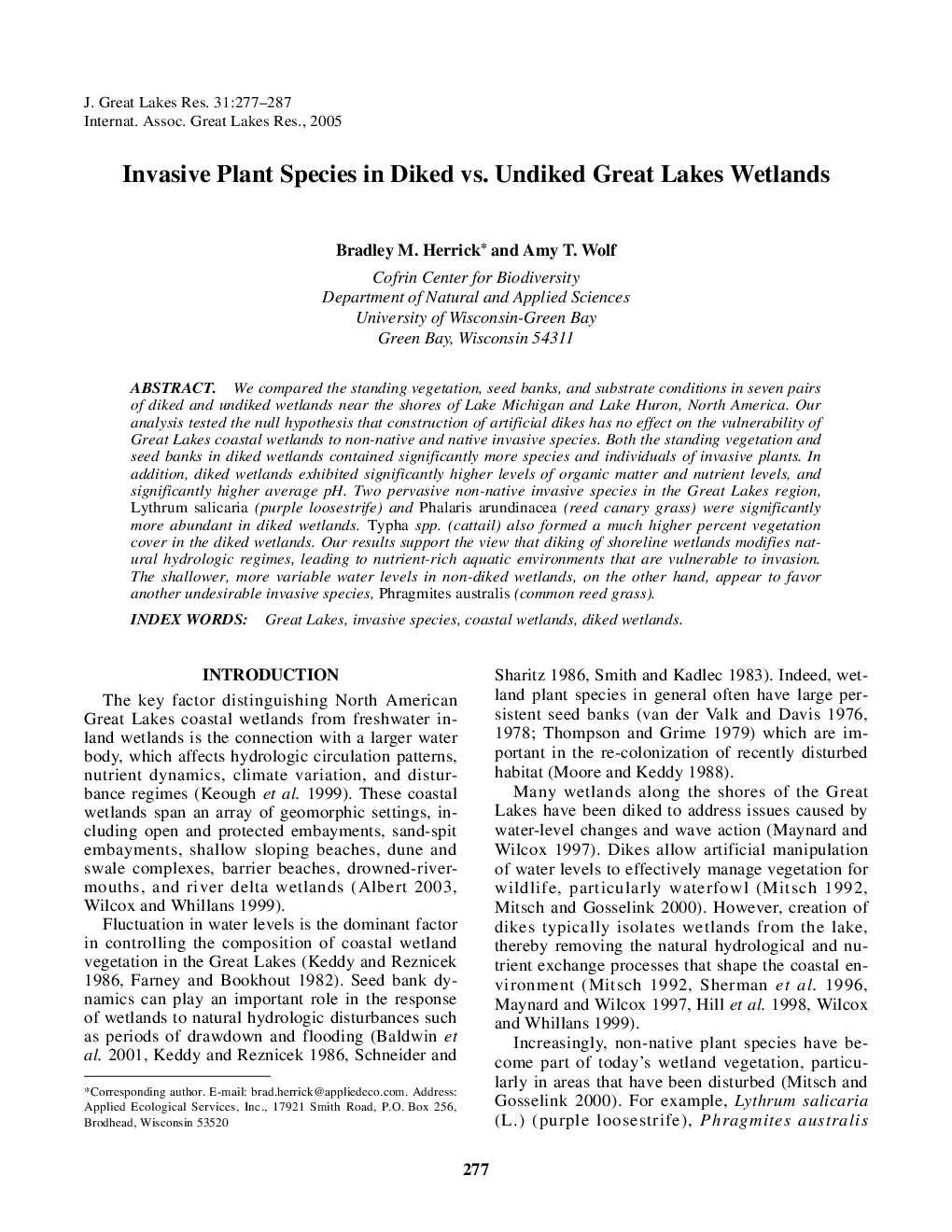| کد مقاله | کد نشریه | سال انتشار | مقاله انگلیسی | نسخه تمام متن |
|---|---|---|---|---|
| 9450403 | 1306761 | 2005 | 11 صفحه PDF | دانلود رایگان |
عنوان انگلیسی مقاله ISI
Invasive Plant Species in Diked vs. Undiked Great Lakes Wetlands
دانلود مقاله + سفارش ترجمه
دانلود مقاله ISI انگلیسی
رایگان برای ایرانیان
کلمات کلیدی
موضوعات مرتبط
مهندسی و علوم پایه
علوم زمین و سیارات
علوم زمین و سیاره ای (عمومی)
پیش نمایش صفحه اول مقاله

چکیده انگلیسی
We compared the standing vegetation, seed banks, and substrate conditions in seven pairs of diked and undiked wetlands near the shores of Lake Michigan and Lake Huron, North America. Our analysis tested the null hypothesis that construction of artificial dikes has no effect on the vulnerability of Great Lakes coastal wetlands to non-native and native invasive species. Both the standing vegetation and seed banks in diked wetlands contained significantly more species and individuals of invasive plants. In addition, diked wetlands exhibited significantly higher levels of organic matter and nutrient levels, and significantly higher average pH. Two pervasive non-native invasive species in the Great Lakes region, Lythrum salicaria (purple loosestrife) and Phalaris arundinacea (reed canary grass) were significantly more abundant in diked wetlands. Typha spp. (cattail) also formed a much higher percent vegetation cover in the diked wetlands. Our results support the view that diking of shoreline wetlands modifies natural hydrologic regimes, leading to nutrient-rich aquatic environments that are vulnerable to invasion. The shallower, more variable water levels in non-diked wetlands, on the other hand, appear to favor another undesirable invasive species, Phragmites australis (common reed grass).
ناشر
Database: Elsevier - ScienceDirect (ساینس دایرکت)
Journal: Journal of Great Lakes Research - Volume 31, Issue 3, 2005, Pages 277-287
Journal: Journal of Great Lakes Research - Volume 31, Issue 3, 2005, Pages 277-287
نویسندگان
Bradley M. Herrick, Amy T. Wolf,